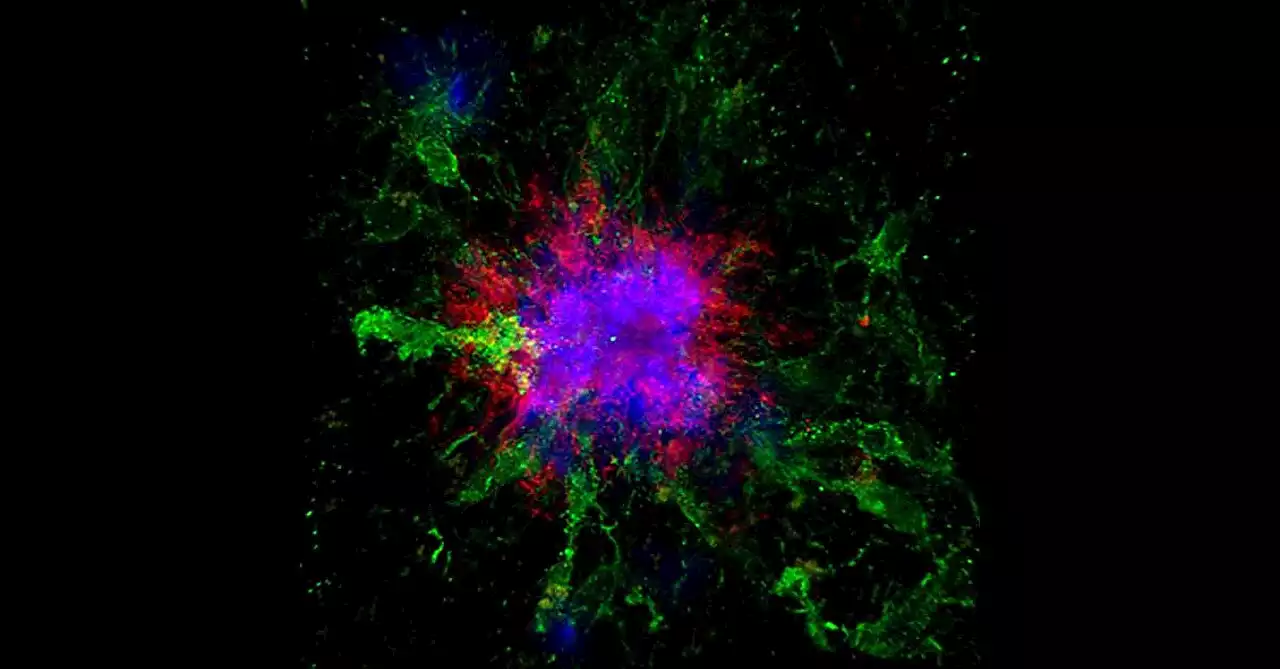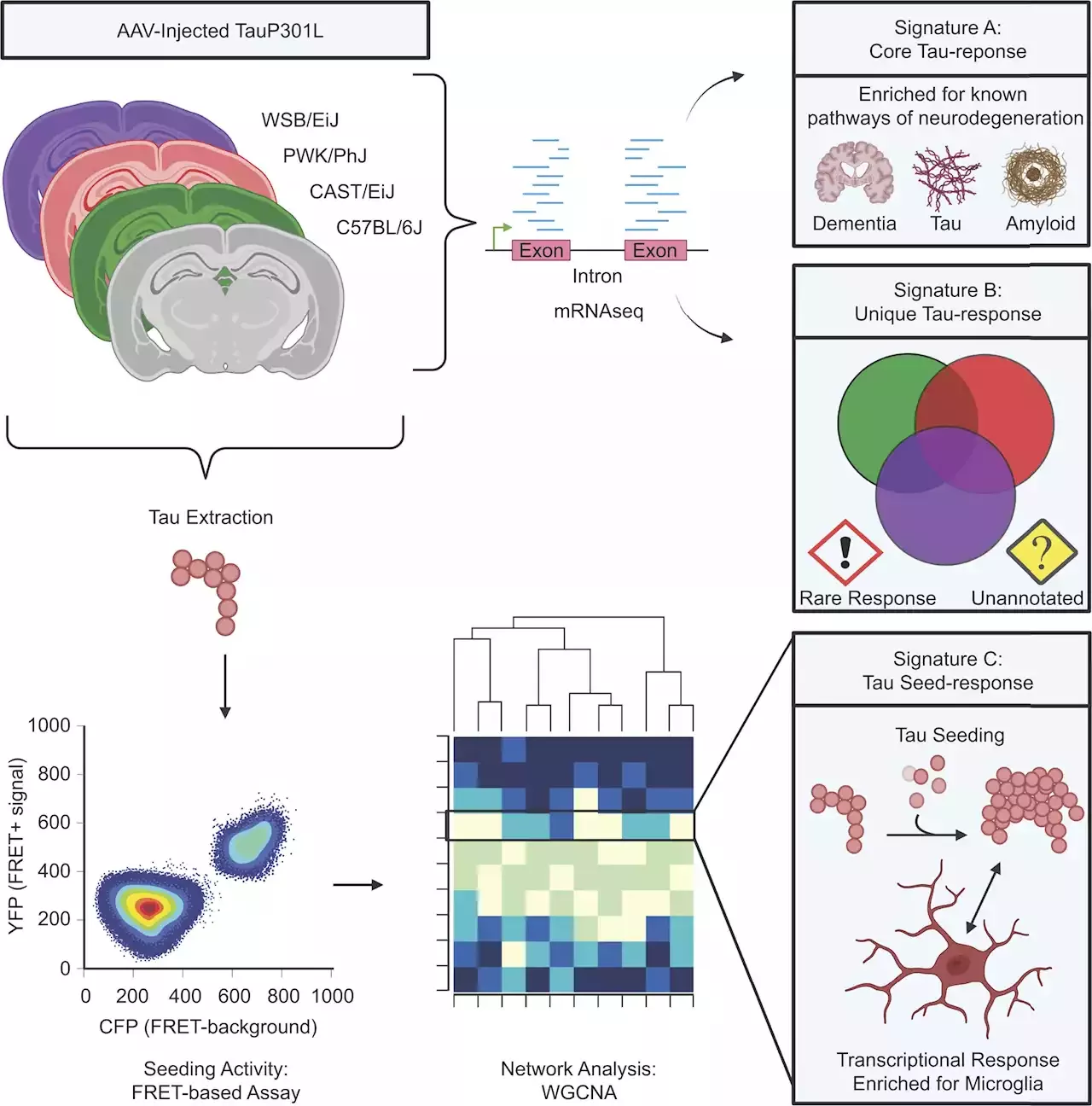A new study by Indiana University School of Medicine researchers uses more genetically diverse mouse models to study the accumulation and spread of abnormal tau protein deposits in the brain—a known sign of Alzheimer's disease and several other neurodegenerative diseases. The study's findings, recently published in the Journal of Experimental Medicine, could lead to better research models that improve understanding of how different genetic backgrounds influence neurodegenerative disease development and treatment needs.
like Alzheimer's, it is critical for us to understand how the brain responds to these tau abnormalities," said Dominic J. Acri, first author on the study and a Ph.D. candidate at IU School of Medicine."Genetically diverse animal models are an exciting new avenue to discover novel mechanisms of. This work is a foundational first step for genetic mapping studies that could reveal druggable targets for neurodegenerative diseases.
Kim said the study was made successful in part by IU School of Medicine scientists' expertise in animal research models for Alzheimer's disease—one of many neuroscience strengths that make the school home to one of the world's most comprehensive Alzheimer's disease research programs, from basic science to drug discovery.
To date, most preclinical studies performed in mouse models of diseases utilize one inbred genetic background. This new study is unique, Acri said, because the research team used models of mice from three different genetic backgrounds, in addition to the single genetic background often presumed to be sufficient to model various human diseases.
Danmark Seneste Nyt, Danmark Overskrifter
Similar News:Du kan også læse nyheder, der ligner denne, som vi har indsamlet fra andre nyhedskilder.
 Neuroscientists show adversities permanently change our brainsNeuroscientists at Radboud University show that adversities permanently change the functioning of the brain. Furthermore, an aberrant reaction of the brain to adversities is related to anxiety symptoms. This may have predictive value for the development of psychiatric disorders.
Neuroscientists show adversities permanently change our brainsNeuroscientists at Radboud University show that adversities permanently change the functioning of the brain. Furthermore, an aberrant reaction of the brain to adversities is related to anxiety symptoms. This may have predictive value for the development of psychiatric disorders.
Læs mere »
 Intermittent fasting improves Alzheimer's pathology in mouse modelOne of the hallmarks of Alzheimer's disease is disruption to the body's circadian rhythm, the internal biological clock that regulates many of our physiological processes. Nearly 80% of people with Alzheimer's experience these issues, including difficulty sleeping and worsening cognitive function at night. However, there are no existing treatments for Alzheimer's that target this aspect of the disease.
Intermittent fasting improves Alzheimer's pathology in mouse modelOne of the hallmarks of Alzheimer's disease is disruption to the body's circadian rhythm, the internal biological clock that regulates many of our physiological processes. Nearly 80% of people with Alzheimer's experience these issues, including difficulty sleeping and worsening cognitive function at night. However, there are no existing treatments for Alzheimer's that target this aspect of the disease.
Læs mere »
 Lanarkshire family to embark on dementia charity walk in memory of beloved mumThe Cambuslang family will take part in Alzheimer Scotland’s Memory Walk in September.
Lanarkshire family to embark on dementia charity walk in memory of beloved mumThe Cambuslang family will take part in Alzheimer Scotland’s Memory Walk in September.
Læs mere »
